Rhonda Del Boccio writes, "I had something, just a thought a really, that I wanted to post." But she wasn't sure how. Well, a comment can be added by anyone by clicking "post a comment" for something longer, like Rhonda's thoughts on greed, send email it to the church and we'll post it. That's how this works. Below is Rhonda's thought to post:
The other day my family and I took a trip to Saint Simons Island, GA. I love it there. You couldn’t paint a better picture. The sky is always a brighter shade of blue and the air is easy to breathe. For years now, I have wanted to live there. For right now, finances keep me in Camden County, a nice place to live where you can still find a house with some land for under $500,000. That would be a steal on the island. One of my favorite things to do there is go to open houses. Sunday afternoons the island is filled with anxious realtors just waiting to show you their newly listed property.

This Sunday my husband, two children, and I stumbled upon an open house for a newly built condo-style development. These houses where built taller than wide with no more than twenty feet between the buildings. We entered the first floor, which consisted of a walk in area, a door to the garage, a set of stairs in front of you and then another door. Wondering what this door was, thinking maybe closet space, I opened it to find an elevator. Yes, your own private in home elevator. My mouth dropped. Already impressed I toured the rest of the home. The next three floors were all exquisitely designed. A total of four bedrooms and four and one half baths. Two living rooms, a huge kitchen, an office...ect. You name it this house had it, including private balconies on three floors and one on the roof, with a beautiful view of the ocean. I was in love. All this for the bargain price of $1.7 million. I thought, I am young enough to afford this one day. I am half way into my psychology degree. If I work hard one day I will be able to buy something like this. I thought about that house all afternoon.
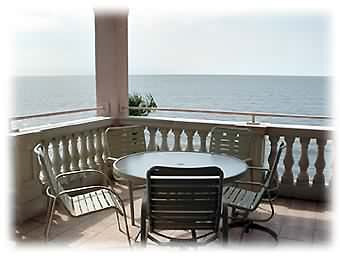
This morning I woke up in my three bedrooms, one bathroom house and got my children off to school. Then my husband, who is off work this week decided that he would like to put his 14ft twenty-year-old johnboat that was given to him by our neighbor in the water for the first time to see if it would float. I went with him to make sure that if he ended up swimming back to shore, someone was there to help. I sat on a swing in the park and watched him drive his boat back and forth, happy as a duck that it ran and didn’t stall. While I was sitting there, I had a thought. What do I need 4400 sq. feet of living space for. I only have two kids. I hate to clean my 1100 sq. feet!
Then I remember something else. While driving back from the island, when we turned off the highway onto our exit there was a man standing by the stop light holding a sign that said, need work, I’m hungry. I can barely write that here without crying. I don’t know what saddens me more, this man that is hungry, or the knowledge of my own hypocrisy. I think we very often pass our greed off as ambition. We have worked hard for what we have, we deserve it, right? We may not need all four bedrooms in our home, but we have worked hard to afford them. We give what we can. We tithe our ten percent at church and donate to the feed the children foundation. Plus, we don’t make a ton of money; there are movie stars and sports stars that make so much more. They should be required to donate more money to the needy.
I will not lie; these are all thoughts that I have had. It is what we tell ourselves to make ourselves feel better, about who we are. In truth though, most of us live in house a little bigger than we really need. We drive the highest dollar car our credit will let us finance. Don’t miss understand, I am not saying that we should not live comfortably or live in squalor. I am simply saying this… I wonder what the world would be like if we could each trade one of our wants, to fulfill someone else’s need.
—Rhonda
 In tomorrow's Gospel reading, Jesus says in part,
In tomorrow's Gospel reading, Jesus says in part, I do not believe that I shift gear in some strange intellectual way when I move from science to religion. In particular, I do not claim that religious belief springs from some mysteriously endorsed and unquestionable source of knowledge that is not open to rational assessment and, if necessary, to reassessment. Theology has long known that our images of God are inadequate to the infinite richness of his nature; that human concepts of God are ultimately idols to be broken in the face of the greater reality.
I do not believe that I shift gear in some strange intellectual way when I move from science to religion. In particular, I do not claim that religious belief springs from some mysteriously endorsed and unquestionable source of knowledge that is not open to rational assessment and, if necessary, to reassessment. Theology has long known that our images of God are inadequate to the infinite richness of his nature; that human concepts of God are ultimately idols to be broken in the face of the greater reality.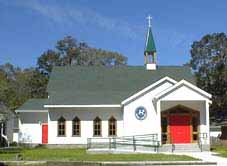 Tonight at 7 p.m., our nearest Episcopal neighbors, at
Tonight at 7 p.m., our nearest Episcopal neighbors, at 
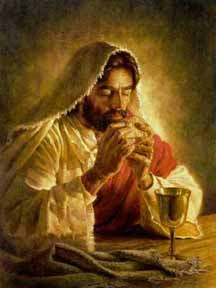 Tonight, Jews around the world celebrate the central act of remembrance of their faith—The Passover. The ritual meal recalls the meal eaten on the night before the Jews were brought out of Egypt by God, under Moses' leadership. On that night, the angel of death passed over the homes of the Jews.
Tonight, Jews around the world celebrate the central act of remembrance of their faith—The Passover. The ritual meal recalls the meal eaten on the night before the Jews were brought out of Egypt by God, under Moses' leadership. On that night, the angel of death passed over the homes of the Jews.

 Jesus told his followers that all the law and the prophets were summed up in loving the Lord you God with all your heart, mind, soul and strength and loving your neighbor as yourself. The second of those commands includes love of self as well as love of neighbor. So self-loathing is not of God.
Jesus told his followers that all the law and the prophets were summed up in loving the Lord you God with all your heart, mind, soul and strength and loving your neighbor as yourself. The second of those commands includes love of self as well as love of neighbor. So self-loathing is not of God. There are approximately 2 million Episcopalians in the United States. Just to keep us humble, I've heard it said that there are more people
There are approximately 2 million Episcopalians in the United States. Just to keep us humble, I've heard it said that there are more people  A few weeks ago, there was a post here about
A few weeks ago, there was a post here about  King of Peace became a younger church yesterday. Once again, a new baby was born into our congregation. Gray Scott McCullough is, for the moment, the youngest member of King of Peace (less than 24 hours old as this is posted). Gray will not be the youngest member of King of Peace for long, probably not even a month. But for now he serves as a reminder. First, you cannot see a new baby without experiencing anew
King of Peace became a younger church yesterday. Once again, a new baby was born into our congregation. Gray Scott McCullough is, for the moment, the youngest member of King of Peace (less than 24 hours old as this is posted). Gray will not be the youngest member of King of Peace for long, probably not even a month. But for now he serves as a reminder. First, you cannot see a new baby without experiencing anew  Charlie and Shelby are already making great parents. However, we know for a fact that they cannot raise Gray alone. The pressures Gray will one day face are more than we can imagine and more than he will be able to deal with properly unless he has
Charlie and Shelby are already making great parents. However, we know for a fact that they cannot raise Gray alone. The pressures Gray will one day face are more than we can imagine and more than he will be able to deal with properly unless he has 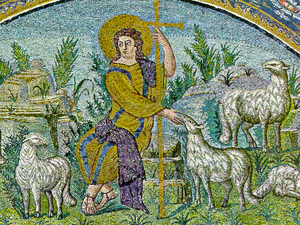 In our sickness we need a savior, in our wander- ings a guide, in our blindness someone to show us the light, in our thirst the fountain of living water which quenches for ever the thirst of those who drink from it. We dead people need life, we sheep need a shepherd, we children need a teacher, the whole world needs Jesus!
In our sickness we need a savior, in our wander- ings a guide, in our blindness someone to show us the light, in our thirst the fountain of living water which quenches for ever the thirst of those who drink from it. We dead people need life, we sheep need a shepherd, we children need a teacher, the whole world needs Jesus!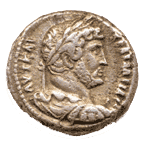 Surely the Gospel reading for April 15 is
Surely the Gospel reading for April 15 is This Sunday my husband, two children, and I stumbled upon an open house for a newly built condo-style development. These houses where built taller than wide with no more than twenty feet between the buildings. We entered the first floor, which consisted of a walk in area, a door to the garage, a set of stairs in front of you and then another door. Wondering what this door was, thinking maybe closet space, I opened it to find an elevator. Yes, your own private in home elevator. My mouth dropped. Already impressed I toured the rest of the home. The next three floors were all exquisitely designed. A total of four bedrooms and four and one half baths. Two living rooms, a huge kitchen, an office...ect. You name it this house had it, including private balconies on three floors and one on the roof, with a beautiful view of the ocean. I was in love. All this for the bargain price of $1.7 million. I thought, I am young enough to afford this one day. I am half way into my psychology degree. If I work hard one day I will be able to buy something like this. I thought about that house all afternoon.
This Sunday my husband, two children, and I stumbled upon an open house for a newly built condo-style development. These houses where built taller than wide with no more than twenty feet between the buildings. We entered the first floor, which consisted of a walk in area, a door to the garage, a set of stairs in front of you and then another door. Wondering what this door was, thinking maybe closet space, I opened it to find an elevator. Yes, your own private in home elevator. My mouth dropped. Already impressed I toured the rest of the home. The next three floors were all exquisitely designed. A total of four bedrooms and four and one half baths. Two living rooms, a huge kitchen, an office...ect. You name it this house had it, including private balconies on three floors and one on the roof, with a beautiful view of the ocean. I was in love. All this for the bargain price of $1.7 million. I thought, I am young enough to afford this one day. I am half way into my psychology degree. If I work hard one day I will be able to buy something like this. I thought about that house all afternoon.  This morning I woke up in my three bedrooms, one bathroom house and got my children off to school. Then my husband, who is off work this week decided that he would like to put his 14ft twenty-year-old johnboat that was given to him by our neighbor in the water for the first time to see if it would float. I went with him to make sure that if he ended up swimming back to shore, someone was there to help. I sat on a swing in the park and watched him drive his boat back and forth, happy as a duck that it ran and didn’t stall. While I was sitting there, I had a thought. What do I need 4400 sq. feet of living space for. I only have two kids. I hate to clean my 1100 sq. feet!
This morning I woke up in my three bedrooms, one bathroom house and got my children off to school. Then my husband, who is off work this week decided that he would like to put his 14ft twenty-year-old johnboat that was given to him by our neighbor in the water for the first time to see if it would float. I went with him to make sure that if he ended up swimming back to shore, someone was there to help. I sat on a swing in the park and watched him drive his boat back and forth, happy as a duck that it ran and didn’t stall. While I was sitting there, I had a thought. What do I need 4400 sq. feet of living space for. I only have two kids. I hate to clean my 1100 sq. feet! 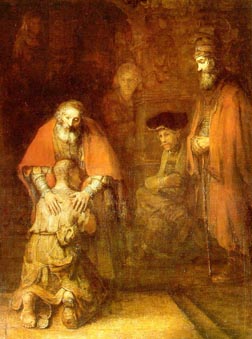 The Christian writer Henri Nouwen's writings emphasize that we are beloved of God, always lovable, always loved. In fact, God chose us to love us. Nouwen wrote in his book The Life of the Beloved,
The Christian writer Henri Nouwen's writings emphasize that we are beloved of God, always lovable, always loved. In fact, God chose us to love us. Nouwen wrote in his book The Life of the Beloved,

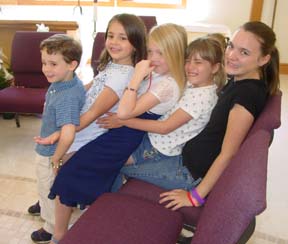 This photo shows a game we played during
This photo shows a game we played during 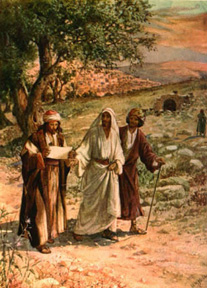 Tomorrow, we will read together
Tomorrow, we will read together 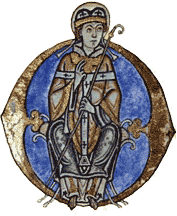 Anselm, an Archbishop of Canterbury (1033-1109), is best remembered for his book Cur Deus Homo (Why God became Man) and his
Anselm, an Archbishop of Canterbury (1033-1109), is best remembered for his book Cur Deus Homo (Why God became Man) and his 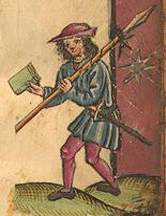 This idea of walking is such a part of Old Testament thought that Jews call their moral and ethical code halachah, which means “
This idea of walking is such a part of Old Testament thought that Jews call their moral and ethical code halachah, which means “
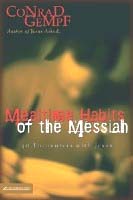 The book does go beyond meals, but all of it is in the typically Gempf style, which includes an attitude more common to a magazine style of writing than what one normally finds from a teacher of scripture. Yet, when we studied his book,
The book does go beyond meals, but all of it is in the typically Gempf style, which includes an attitude more common to a magazine style of writing than what one normally finds from a teacher of scripture. Yet, when we studied his book, 
 Today, with world commodity prices far below the costs of production, Fair Trade provides a critical alternative to the “free trade” market and creates a more equitable and stable trading system. The Fair Trade floor price and direct market access reduce the devastating effects of the boom and bust cycle on farmers and their organizations. The result is stronger farmers’ cooperatives, independence from exploitative middlemen, and more revenue for social development and environmental conservation programs.
Today, with world commodity prices far below the costs of production, Fair Trade provides a critical alternative to the “free trade” market and creates a more equitable and stable trading system. The Fair Trade floor price and direct market access reduce the devastating effects of the boom and bust cycle on farmers and their organizations. The result is stronger farmers’ cooperatives, independence from exploitative middlemen, and more revenue for social development and environmental conservation programs.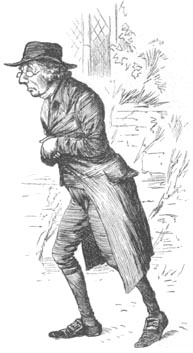 their desire to celebrate his life. It is part of my job, to represent our whole congregation on some occasions. Another example that comes to mind is when I showed up, check in hand, to let the congregation of First African Baptist Church know that we were praying for them after their building burned to the ground. It's sometimes impractical for us all to go and show our concern and so I go to represent the congregation.
their desire to celebrate his life. It is part of my job, to represent our whole congregation on some occasions. Another example that comes to mind is when I showed up, check in hand, to let the congregation of First African Baptist Church know that we were praying for them after their building burned to the ground. It's sometimes impractical for us all to go and show our concern and so I go to represent the congregation.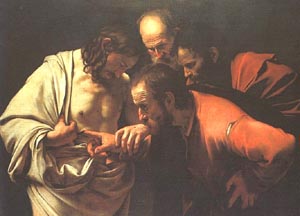 dead, Thomas is there at Jesus’ side when Jesus says they are going to the outskirts of Jerusalem to raise Lazarus from the dead. Jesus’ endangers all their lives by going to Jerusalem at this point as powerful people in Jerusalem want Jesus dead. Thomas knows this and says to the Apostles, “Let us also go to Jerusalem, that we may die with him.” Thomas could mean, let us go so that we can die with Jesus or with Lazarus. What is clear is that Thomas doubts that the group can go to Jerusalem and come out alive. Is Thomas ready to die, or is he trying to get the gung-ho group to slow down and see what the cost of discipleship might be? We can’t be sure, but given what else we know about Thomas, I wouldn’t want to dismiss the possibility that he is being facetious. Jesus says, “Let’s go to Jerusalem.” And the not quite so fool-hearty Thomas says, “Let’s all go to Jerusalem so that we can die with him.”
dead, Thomas is there at Jesus’ side when Jesus says they are going to the outskirts of Jerusalem to raise Lazarus from the dead. Jesus’ endangers all their lives by going to Jerusalem at this point as powerful people in Jerusalem want Jesus dead. Thomas knows this and says to the Apostles, “Let us also go to Jerusalem, that we may die with him.” Thomas could mean, let us go so that we can die with Jesus or with Lazarus. What is clear is that Thomas doubts that the group can go to Jerusalem and come out alive. Is Thomas ready to die, or is he trying to get the gung-ho group to slow down and see what the cost of discipleship might be? We can’t be sure, but given what else we know about Thomas, I wouldn’t want to dismiss the possibility that he is being facetious. Jesus says, “Let’s go to Jerusalem.” And the not quite so fool-hearty Thomas says, “Let’s all go to Jerusalem so that we can die with him.”






1 Comments:
At 4/30/2005 12:25 PM, King of Peace said…
King of Peace said…
Photos from the Passover Seder held at King of Peace this past Sunday, are now online.
Post a Comment
<< Home